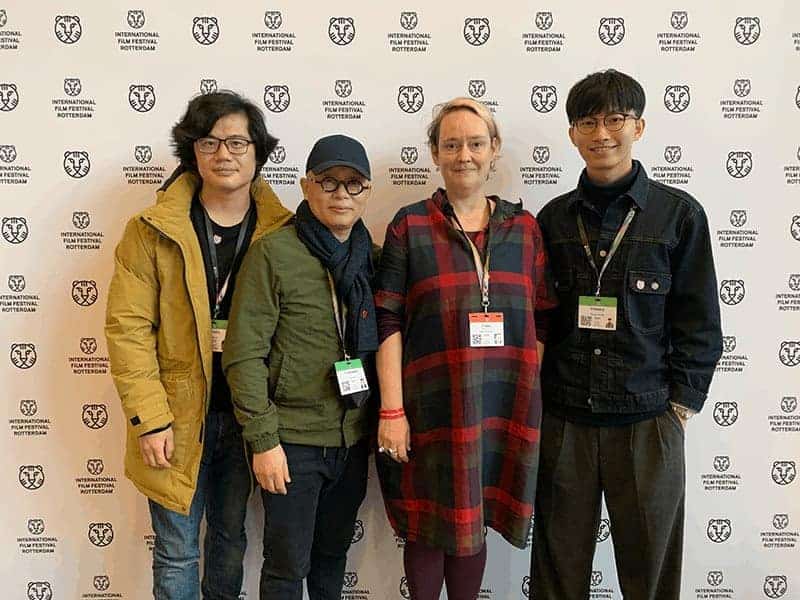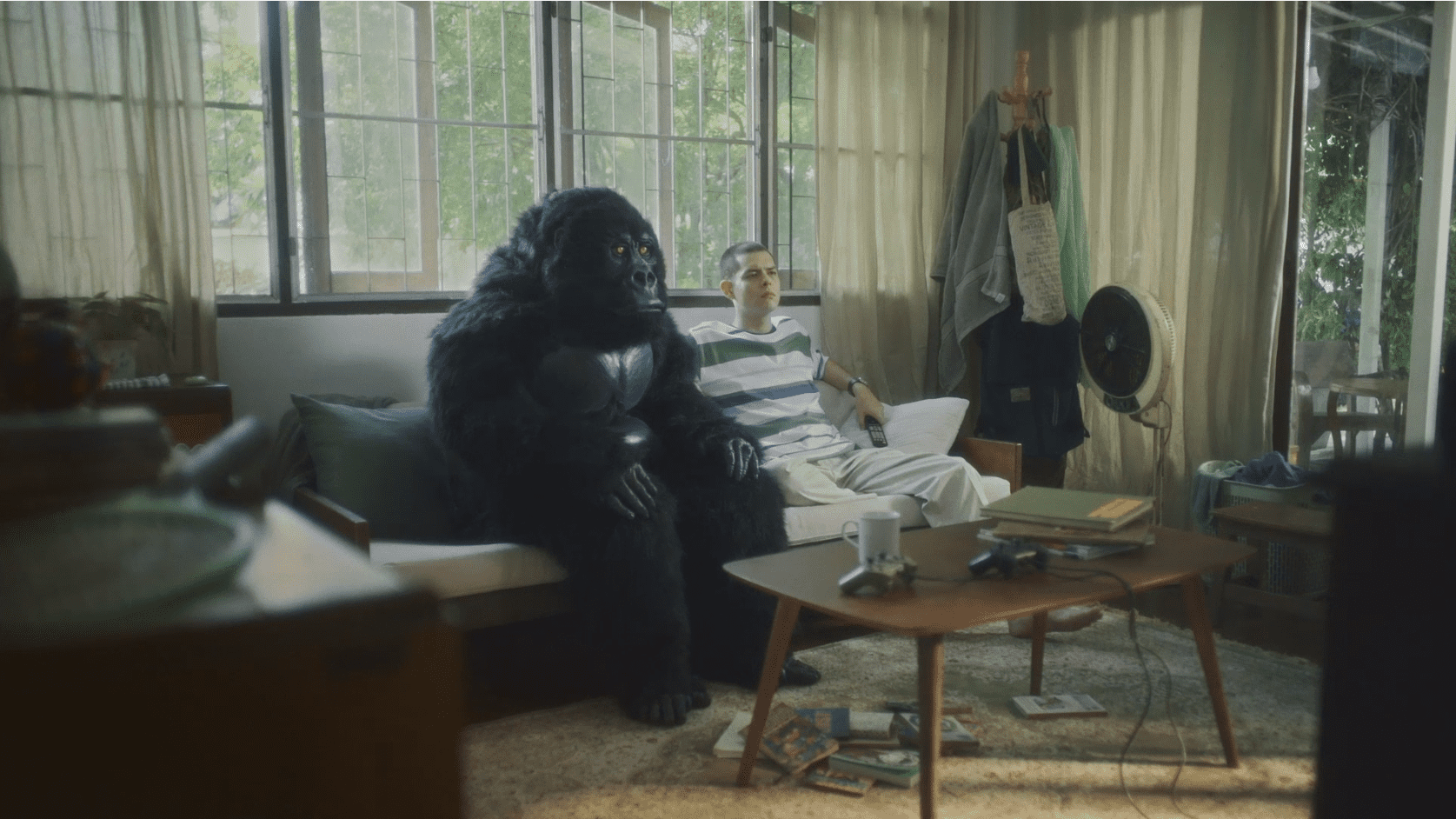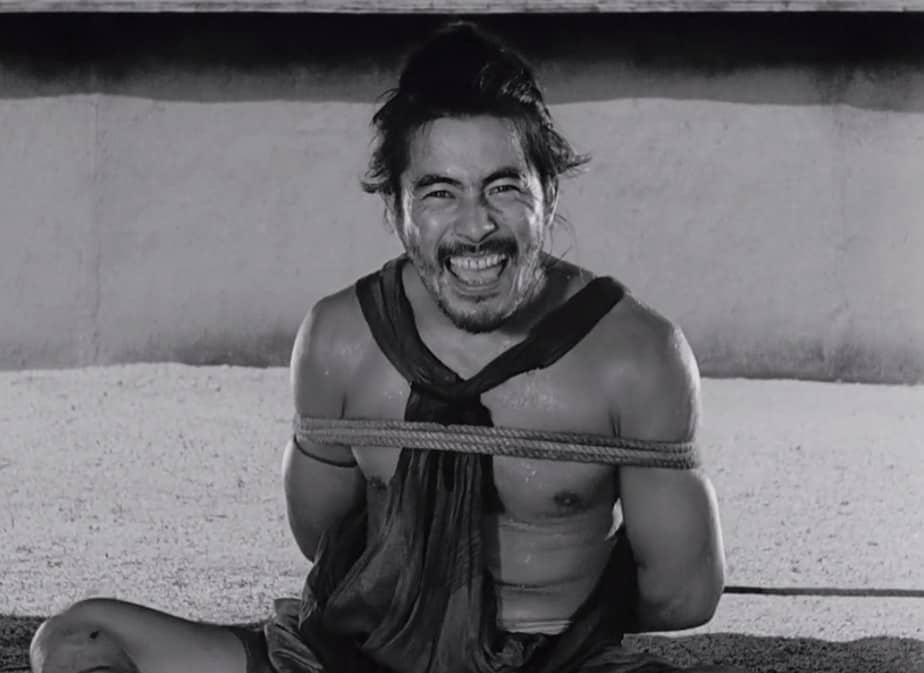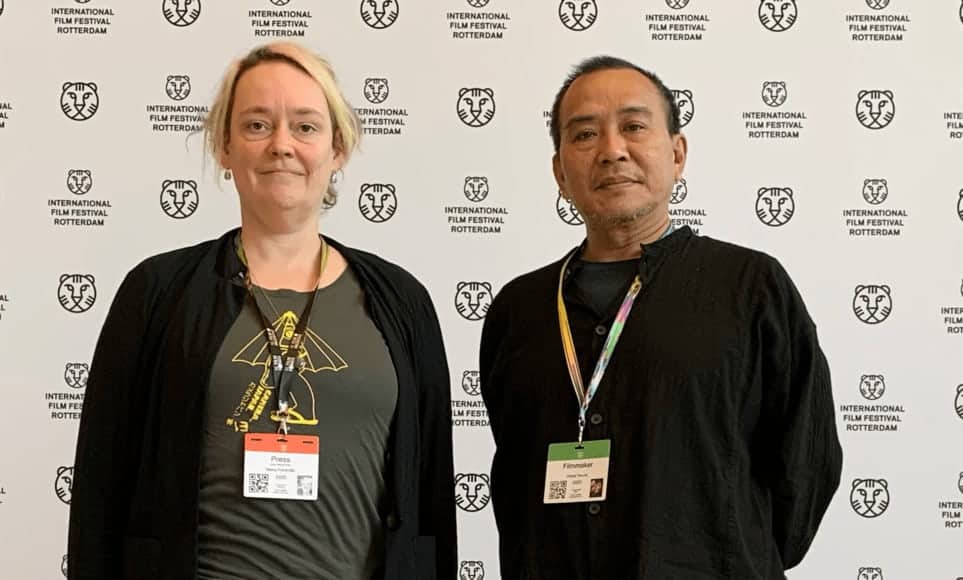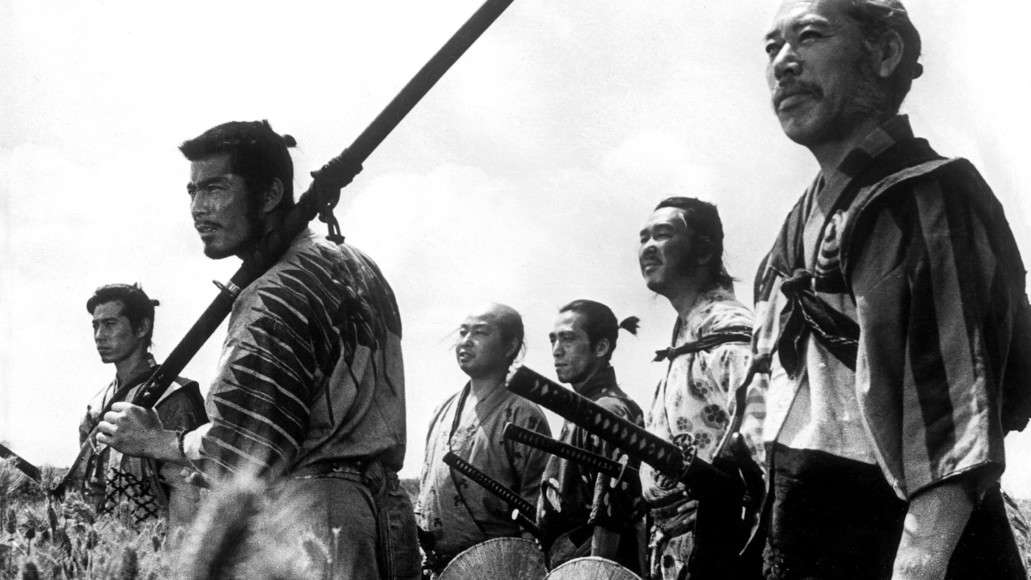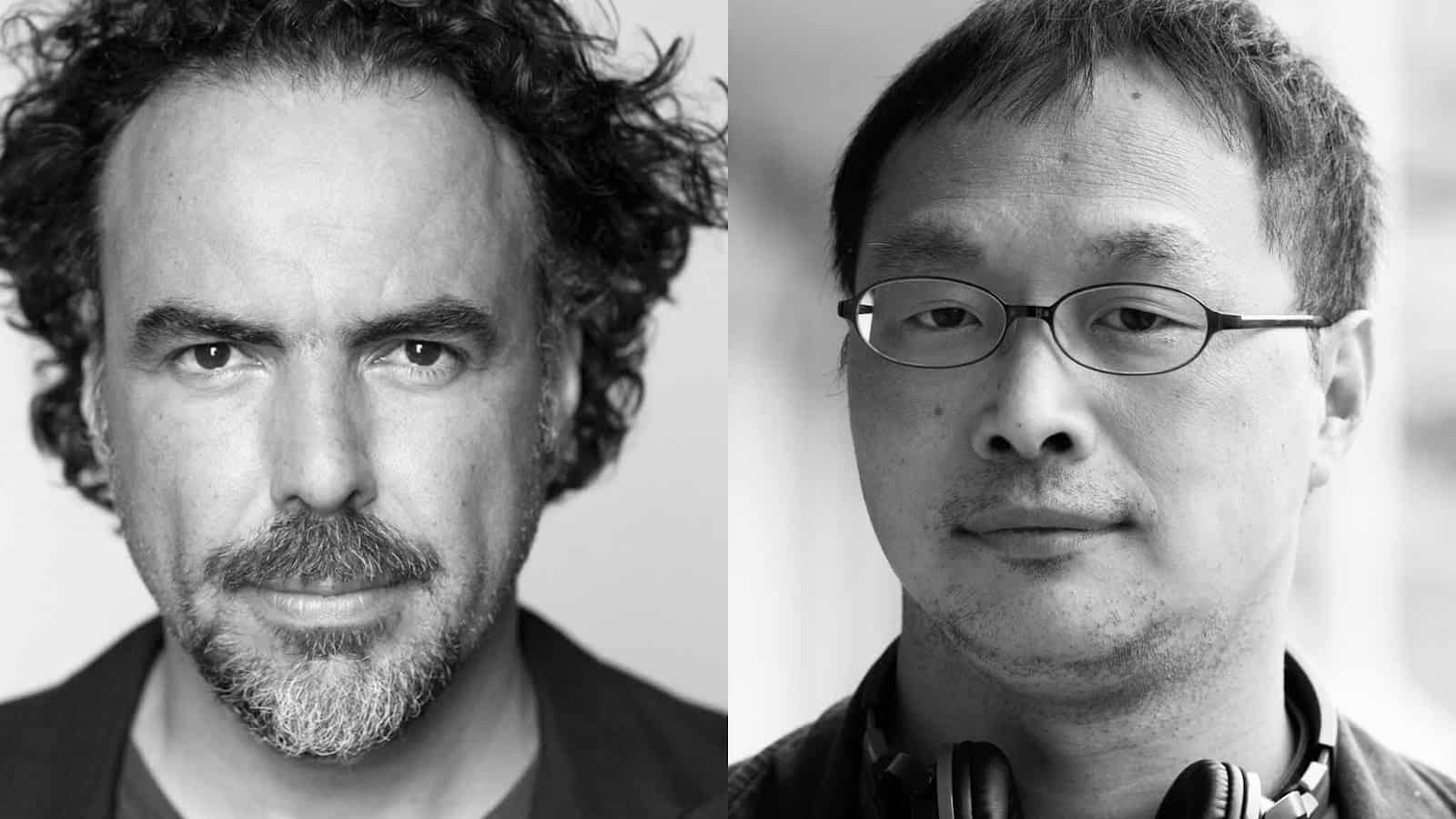Gao Ming is a screenwriter, director and designer. He has a teaching degree in painting from a teacher's college in Ganzhou, Jiangxi. After graduating, he decided to pursue his dreams in Shenzhen where he had his own design studio. He started making films in 2005 when he made a feature documentary “Pai Gu” and in 2007 he made a short film “A Song”. His feature film “Damp Season” has its world premiere at IFFR 2020.
Huang Yucong is from Hongkong. He studied cinematography. “Damp Season “is his debut as an actor.
We talk to them on the occasion of the world premiere “Damp Season” at the International Film Festival Rotterdam (IFFR) about fish, the film's locations, casting procedures and other topics.
The film crew for “Damp Season” had a lot of experienced people such as Liao Ching-Song, the editor, and Otsuka Ryuji, the director of photography. How did that work?
Gao Ming: Many of the crew members working on this film are indeed pretty well known. Even though, in China, there is a division between art films and more commercial films, people working on commercial films still have the desire to make art films. So, when you have a script you approach them and if they like the script they will want to participate.
Fifteen years ago, I made a documentary film and also a short fiction film, but this is my first fiction, feature film. However, I visit a lot of exhibitions and have always liked art. Also, I used to paint and draw, and because of that me, and the crew shared the same language while working on this film. But the most important thing was that the script moved them.

The English title of the film is “Damp Season” can you explain about the meaning?
Gao Ming: The Mandarin title is a term that refers to one week in the whole year when it is really, really wet in south of China. Literally everything will be soaked: your bed, your window, the floors really everything. It is a rather disturbing feeling. I think the translation is perfect because the word damp really expresses that this wetness is very disturbing. If, for instance, we would have chosen wet instead it would not have had that connotation.
The story uses quite some metaphors. One of the recurring images is that of fish. What inspired you to use this?
Gao Ming: Before I made this film, me and my wife had a fashion company for 10 years, but it went bankrupt. After this failure I had problems with my family, and I felt ill. It made me realized that if I didn't do something about it, I would suffer from depression. So, I picked up jogging and fishing. Because of the fishing, I travel to many different places and one day I went to the lake that was later filmed in the film. It is the biggest lake in the center of Shenzhen. It is actually close to my place, but I never realised that it was there. The lake used to be an amusement park for kids but then it was abandoned. Now people just go there to fish. It's different from the crowded places in the city and I frequently go there to just sit and relax and look at the fish, not necessarily to go fishing.
After sitting there on my own for a long time I sometimes had some illusions. During these it would feel like I was a fish in the lake, but at the same time I was inside a tank. So, I could see where to go but was stopped by the glass. And this is where the image of fish comes from. I use this in different ways in the film, like at the end when people are blowing soap bubbles, they are all fish.
It's your first role as an actor in a feature film. How did you get involved? And can you tell us about the casting procedure?
Huang Yucong: I saw an ad online and sent my resume. When the director saw it, he contacted me and asked to write an essay about myself and my relationship with the film. He also asked to make a short film about my daily life, without any special events in it, just my normal daily life.
When me and two other male actors were selected, we were invited to the village near the lake where the film was shots. We lived there together with the three female candidates for three days to experience living in the village before they were selected. I caught his eye because he thinks I look like a monkey. (laughs)
Gao Ming: He sent me a black and white film of his life at home and it was very boring, but I could see he had thought a lot about the look of that film. Also, I was looking for someone who didn't have a lot of experience as an actor. He is a quiet person but at the same time he has a lot of personality and attitude. While we were in the village, I kept taking pictures of him and when I saw those, I knew he was the one.

There are two upsetting scenes where your character tries to force himself on the women making it hard to really like him. How did you prepare for these scenes?
Huang Yucong: Before shooting the film, me and Chen Xuanyu who plays the girl, lived in the village for one month. We really lived in the couple's house in the film, which was a disturbing experience as the house was very wet with a lot of mosquitoes and cockroaches. And during that time, we actually went through many emotions in our real life. After this month it felt like I had become another person, as if I was no longer myself but rather the character from the film. And this morning at the industry screening, when I saw the film for the first time, I also hated this man.
But, it was an interesting experience. At the moment they are tearing the entire place down and that makes it even more special. The village is in the centre of the city between very tall buildings and very expensive houses. They are redeveloping this location. The house where we filmed is already gone and amusement park will be knocked down soon. So, there is no more possibility to shoot in this place.
The opposition between the house of the couple and those of the older characters could hardly be bigger. Is this just a visual choice?
Gao Ming: The characters have different living environments. The house that the couple lives in is more likely to have someone actually living there. The other two houses don't give you that feeling. They are empty. This difference might be reflecting the old and the young character. It is not clearly defined, but maybe those characters are the same person. That would mean that young one is the younger version of the old character, but it's not made explicit in the film. You don't know if the young boy will become that older man later, maybe but maybe not. Other people might have a different view, but that is ok.

On the IFFR website they talk about your film being part of what they call ‘the ‘Southern Wave' of Chinese cinema. Do you think there is such a thing as a ‘Southern Wave'?
Gao Ming: I agree with the term used on the website, because in China we also have a term to describe this trend. The past few years a lot of young directors come from the south emerged with really good films, like Bi Gan with “Kaili Blues” and “Long Day's Journey Into Night” or Gu Xiaogang who is also at IFFR with “Dwelling in the Fuchun Mountains”. The term shows real insight in Chinese cinema because not many people know there is a difference between the northern and the southern films. I think cinema from the South is closer to other Asian cinema's such as that from Hong Kong, Taiwan and maybe even Thailand. It's more related in style to the films or for instance Wong Kar-wai, Edward Yang or Tsai Ming-liang.


